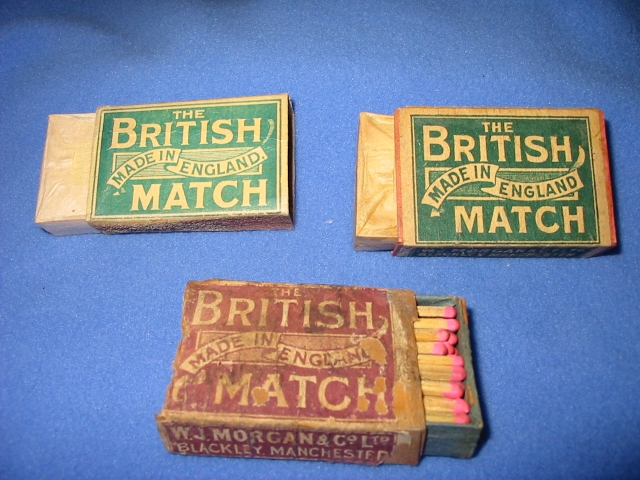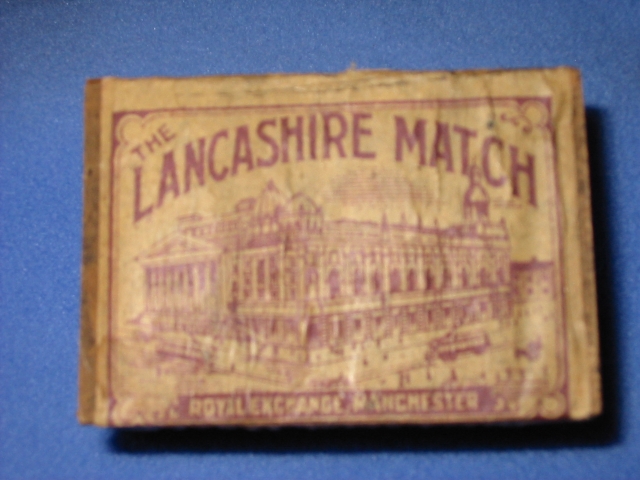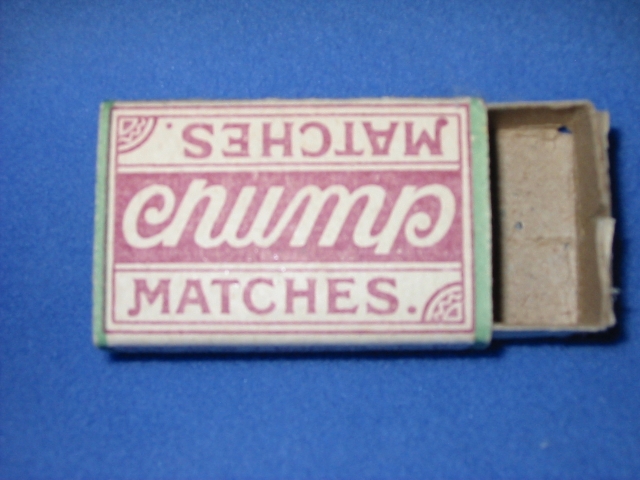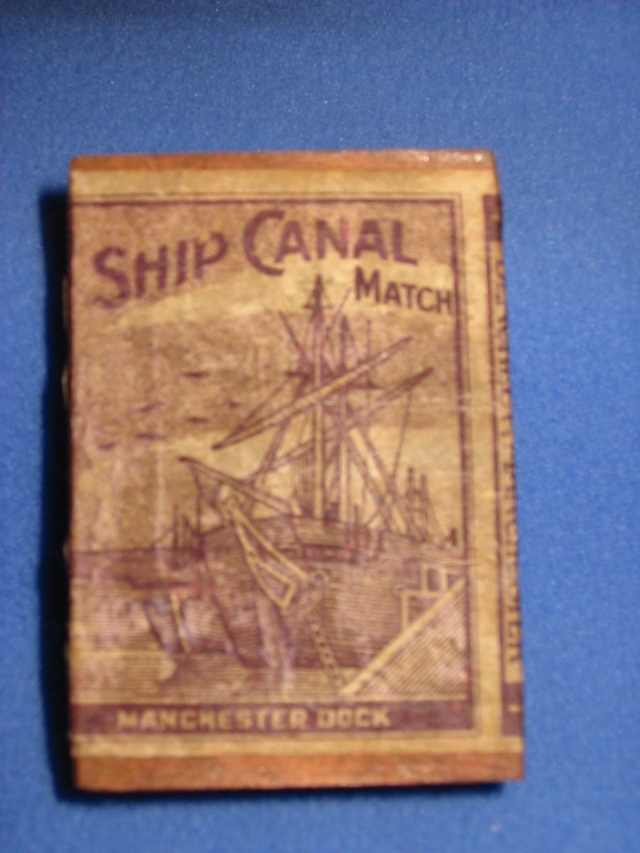NORTH WESTERN PHILLUMENISTS
W J Morgan and Sons
"Marriages are made in Heaven; but matches are made in Blackley"
So goes an old Manchester saying. At a recent meeting we looked at the match manufacturers of Manchester and a range of items associated with the city. Over the years nearly 20 companies have made matches in the area. Some are but names in old directories; but some are well known to collectors. These include Dixon Son and Evans, Hulme, Hargeaves and Clegg, Sankeys and Morgans. It is the story of W J Morgan and Sons that we will deal with in this article.
The company started as Brennans in the 1860's, became Morgan, Lomas & Co about 1884, then became W J Morgan and Co in 1889.The company operated from the Crumpsall Vale Match Works and continued till about 1916 when it was taken over by Bryant and May. In the early years the company registered Beaver in 1902 and Special Express Match in 1903.
Amongst the brands produced were Jaguar, Lancashire Match, British Match, Superior Oil and Wax Vestas as well as Chump for John Sankey. In 1891 the CWS were offering the following from the company –
|
In the June the 5th edition of the Sunday Telegraph is a detailed description of a visit to the factory. The author was shown round by Mr W J Morgan and the factory still employed hand dipping and little machinery was used. The splints were imported pre cut Canadian pine and a simple machine was used to place them in frames. Each frame contained 6,500 splints. The splints were then placed on a hot table to dry them before dipping. They were first dipped in paraffin wax and then in the composition before being left to dry.
The matches were then removed and cut in two as both ends were dipped. They were then packed into boxes by girls. Payment was by piece work 1d per gross. The highest wage was 18/- per week; but the normal was between 10 and 12 shillings per week. The boxes were made from Russian aspen veneer by simple machines. That is a basic description of a match factory of that time.
Most of these brands continued until the company was taken over by Bryant and May. After that time the company seems to have produced CoOp boxes; but this is difficult to prove as the company moved production to wherever there was spare capacity.
Again the company was visited by the press and details are given in The Manchester City News for the 18th of February 1933. Production was now much more mechanized and production was 5 million matches per 10 hour day. Again the splints were imported from Canada as white cork pine, then machine dipped in paraffin before the composition is added. They then traveled 404 feet before being punched out and hand packed into trays and outers. The boxes were then packed into dozens and grosses. All the printing was done in the factory. Wages were now 36/3d for the girls, and from 3 to 6 pounds for the men. On a case of 32 gross worth about 14 pounds the government took over 6 pounds.
The company continued into the 1950's. In 1949 the company registered Loyalty as a trade mark, and was valued by Bryant and May at just over 15,000 pounds. The company at this time was producing strike anywhere only, and for that year the sales were 70,000 gross. 70 per cent of these were made for Bryant and May. Amongst brands produced at this time were Puck, Webb, Tiger, Pilot, Swan, CWS, Brilliant, Loyalty, Pearl, British, Bluebell, Ruby and Three Torches. It is not certain when the factory closed; but this was probably in1952/3 when the box sizes were reduced. So ends the tale of match making in Blackley.
Figure 1 - Three examples of British Match 
Figure 2 - Lancashire Match
Figure 3- Chump reads the same both ways up
Figure 4 - Ship Canal registered 1888
Originally published in the NWP Bulletin number 160, April 2000
|